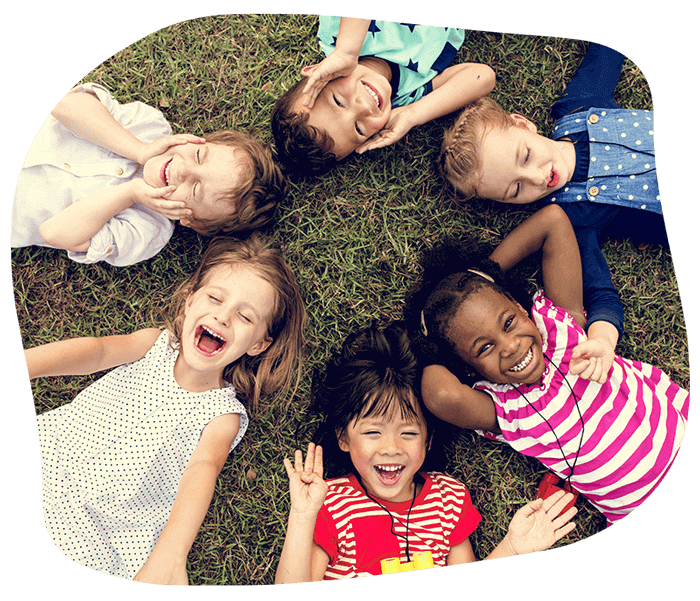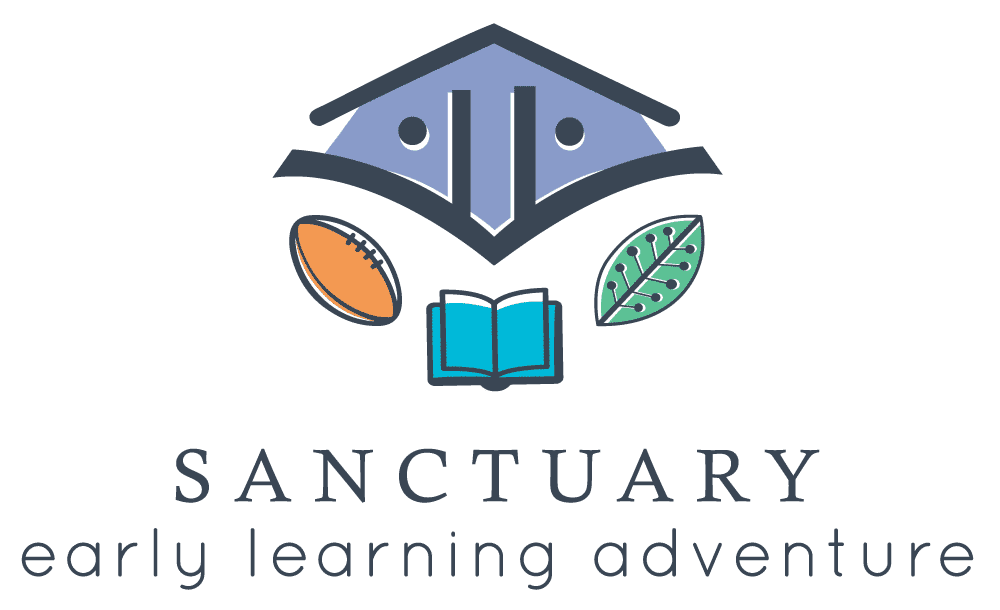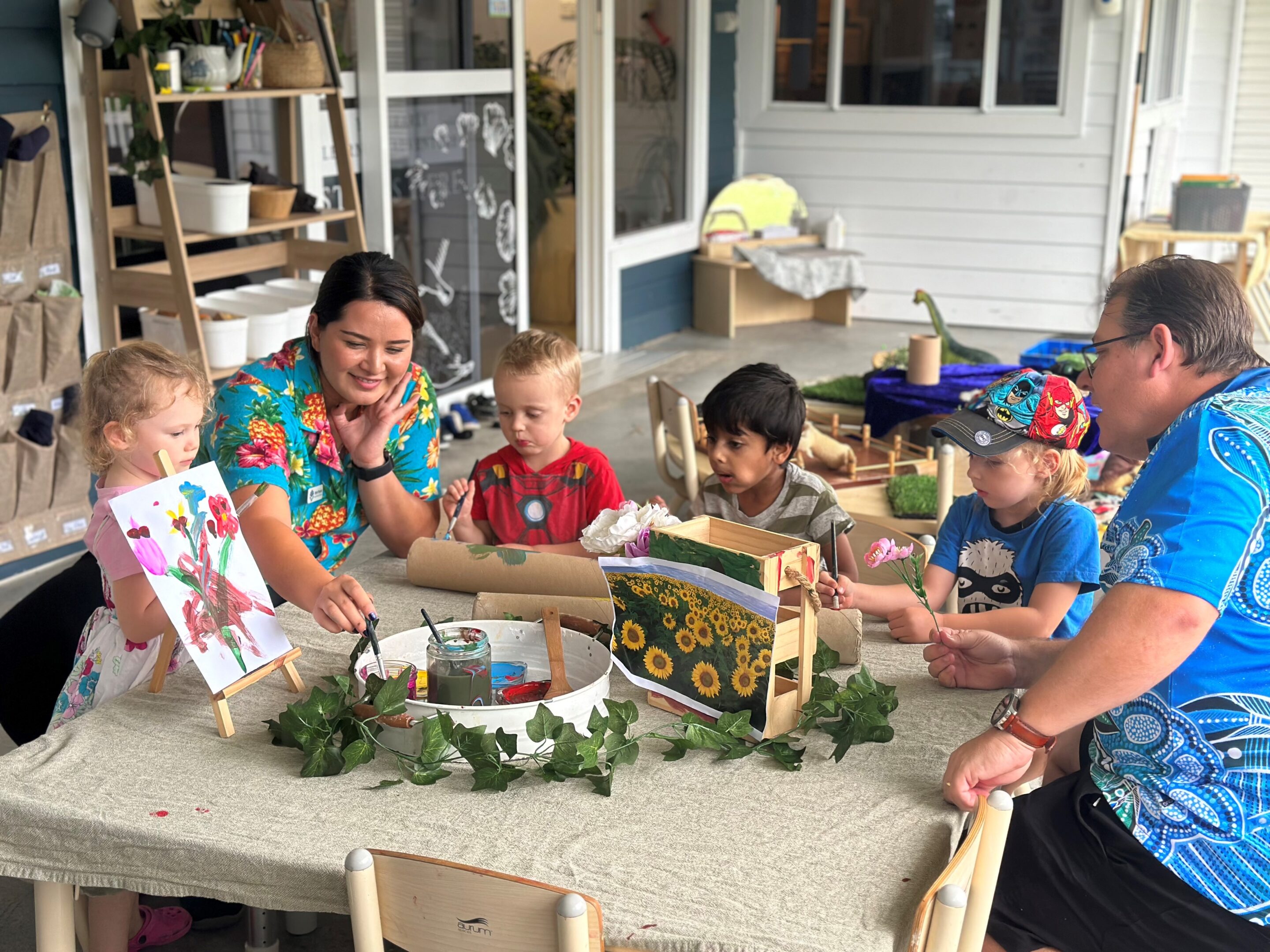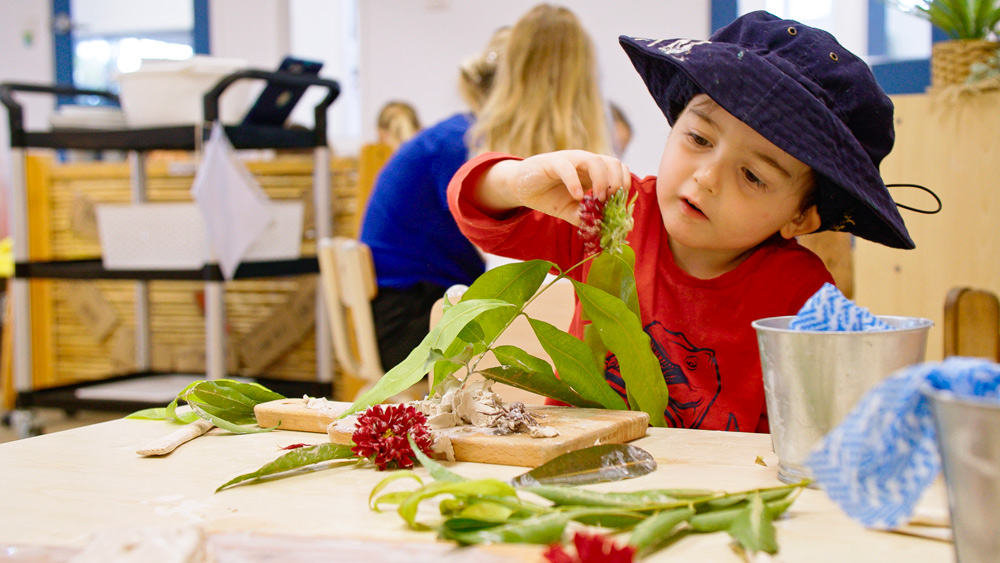Sustainability education in child care is so very important, to develop connections to the natural world by nurturing children’s understanding and respect for their natural environment. For children to gain an understanding of the connection between people, plants, animals and the land, we make this hands on and FUN, which makes it a lot easier for children to grasp.
I know as a child I remember thinking why is it so important that I put my rubbish in the correct bins, and why is it so important that I turn my bedroom light off (I am sure mum said that to me hundreds of times over the years), I guess I didn’t get it because I didn’t fully understand the importance.
It is so important to explain ourselves clearly when communicating with adults, well it is even more important to communicate clearly when communicating with children.
By having an onsite cook that uses vegetables from our very own vegetable garden, this helps show children how we make these connections. At Sanctuary we have a holistic approach towards sustainability education and we make sure the children get to take turns in picking the vegetables and we have special cooking days so that they make that connection from growing the food to using it in our cooking and eating it.
We encourage children to reduce, reuse and recycle each and every day to all help do our part to protect our world. Our educators spend time with the children showing how each child can make a positive difference, through stories, games, songs and getting out in the garden and showing them hands on.

We encourage children every day to practice sustainability in their day to day routines, including below activities:
• Use recyclable materials
• Educate children on recycling practices and implement these practices into daily routines in the child care centre
• Use rosters and routines to allow children to be involved and responsible for watering and energy/waste/ water reduction
• Encourage children to turn the water off once they have washed their hands
• Educate children about electricity and the importance of turning lights off
• Educate children on caring for our plants
• Emptying water bottles into gardens
• Use recycled and natural products for construction, arts and crafts where suitable
• Have available a range of resources, books, posters, games, puzzles and science resources to support our sustainability education learning.
When it comes to sustainability and animals they go hand in hand. The lifecycle of every living creature needs to be cared for and nurtured. When it comes to either composting and using our scraps to feed the worms who then in turn create worm tea to feed our gardens then we can continue using all the nutrients that are provided to us with little effort. In turn we are cutting down on our carbon footprint and doing everything we can to reduce, reuse & recycle.
Cultivating relationships with our animals will also enable children to foster a caring approach and sense of responsibility furthermore supporting their development of empathy.






